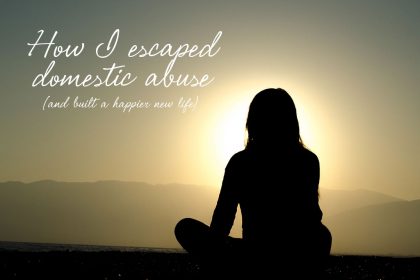How you can identify and help people living with domestic abuse
Are you worried a friend or loved one may be in an abusive relationship? Find out some of the signs to look out for, and how you can help them.
A staggering one in five people have experienced domestic abuse since the age of 16 in the UK. That amounts to 10.4 million people across the nation. A further one in 20 experienced domestic violence between March 2021–March 2022.
These sobering statistics highlight how pressing an issue domestic abuse is in the UK.
Domestic abuse is defined as any threatening behaviour, violence or abuse from a current or ex-partner. This can be psychological, physical, sexual, financial or emotional.
Beecham Peacock, a leading provider of legal services in family law and beyond, has offered expert advice on five ways you can identify and help people experiencing domestic abuse, including important updates to divorce law.
Please note, in this article we have chosen not to refer to people experiencing domestic abuse as ‘victims’. Instead we call them survivors. Because whether someone has left an abusive relationship or is currently living in one, it takes an enormous amount of strength and courage to survive.
The word ‘victim’ feels weak and diminishing. The only weak person in an abusive relationship is the abuser, who is unable to control their feelings.
How common is domestic abuse?
Sadly, domestic abuse is more common than you may think. Here are some key findings on it:
- Domestic abuse has affected one in five adults in the UK since they turned 16.
- Domestic abuse-related crimes rose by 7.7% between March 2021–2022, according to data from police in England and Wales.
- In this period, the National Domestic Helpline delivered 50,791 support sessions through phone call or live chat.
- The domestic abuse-related charging rate increased for the first time in four years, surging to 72.7% in the same timeframe, according to the Crown Prosecution Service (CPS).
- 1.5 million domestic-abuse related crimes were reported in England and Wales between March 2021–March 2022.
- The no-fault divorce law can help survivors of domestic abuse to leave their marriages more easily.
- Identifying the signs of domestic abuse, including injuries and a change in behaviour, will help you support survivors.
How can you spot signs of domestic abuse?
In order to help someone experiencing domestic abuse, you need to understand the signs. They may be hard to spot – that’s often the aim of the abuser – but it’s possible to discover tell-tale signs.
First of all, physical abuse can leave marks on the their body. Someone who is being physically abused may have regular bruises or physical injuries associated with being choked, punched, or knocked down — and they are likely to have a weak or inconsistent explanation for these injuries.
They may also have injuries that aren’t visible. If they appear to be in pain with no noticeable symptoms, this could be in indication of domestic abuse. Equally, someone visibly trying to cover up, or wearing long sleeves on hot days, could be trying to hide evidence of abuse.
It’s also important to remember that domestic abuse isn’t always physical. Coercive control includes acts of controlling, coercive, isolating and/or threatening behaviour, and can cause a significant amount of emotional harm.
Someone subjected to coercive control may come to believe that they will always be under the abuser’s control, or be constantly on edge to the point where they can never truly relax. They may become withdrawn and communicate less often with you. If you begin to notice a change in your friend or loved one, it may be domestic abuse.
If you want to learn more about how abusive relationships work, we list more signs of domestic abuse here.
How to help people suffering from domestic abuse
So how can you help someone you believe may be living with domestic abuse? Here are five actions you can take to assist them.
1) Take the first step
Any of the signs we’ve just mentioned above can indicate domestic abuse. If you’ve noticed someone hiding bruises with clothes or a reluctance to talk about where their injuries have come from, they may be living with domestic abuse.
Equally, if a loved one’s behaviour changes, if they start to withdraw from their social life, if they give up interests they previous enjoyed, or they worry about being home late, or their partner finding out innocent information, they could be subjected to coercive control.
If someone is living with domestic abuse, they are likely to find talking about it difficult, and may not even be aware of what is happening.
That’s why it may be a good idea for you to take the first step. Start by explaining your concern, along with reassurance that you would be discreet with any information you share. Allow the conversation to develop at a comfortable pace rather than attempting to force the other person to open up.
Remember to pay attention without judging. If you pay close attention, your loved one may tell you exactly what they need. Just give the speaker a chance to finish their sentence.
2) Try to understand to their feelings
Domestic abuse can be complex, and people experience it will often be confused about their situation. These feelings are often a combination of guilt, despair, love and fear. People sometimes stay with abusers because they feel a duty to help them, or that they cannot abandon them.
Even if you can’t relate to their experiences, it is important to validate them. Let them know that these conflicts are normal. However, it’s also crucial to stress that using violence or emotional abuse is unacceptable and that living in constant fear is not normal.
If they haven’t been in other relationships, they may not realise the extent of the abuse. Or they may have become accustomed to the cycle. Regardless, it’s important that the person in question feels your support and validation – often these feelings can empower domestic abuse survivors to take action, in spite of their fear.
3) Help them access divorce and family law advice
If the person you’re helping is married, you can inform them of any possibilities to dissolve the legal binding. Thanks to changes that came into effect in April 2022, they will not need a reason to file for divorce. Although domestic violence qualifies as a grounds for divorce, a no-fault divorce can remove a lot of the stress and emotional manipulation from the situation.
You may also want to help them get information on child custody. In cases involving domestic abuse, they will not have to attend a mediation meeting before going to court. It costs £232 to apply for the court order, but they may be entitled to help if they’re on benefits or a low income.
You might also want to point them in the right direction of legal matters. For many people, the associated costs are a barrier to pursuing and receiving the proper help and support from solicitors.
However, subject to a means assessment, they could be entitled to receive legal aid to help pay fees. And if they have received an injury as a result of crime or violence, for example, they may be entitled to receive compensation through the Criminal Injuries Compensation Scheme.
As much as you can try to help, you must let the person you want to help decide if they’d like to prosecute. Depending on the nature of each case and their preferred outcome, there are various different routes to explore.
If the case goes to court, they may be expected to give evidence against an abuser. Specialist legal teams can coach people who have experienced domestic abuse through this process, but please be aware this can be difficult, both mentally and emotionally.
If a case goes to trial, the abuser could face a prison sentence, and could also be subject to a restraining order – which could help give peace of mind for safety.
4) Point them in the right direction
You can help by finding practical resources. Look up telephone numbers for shelters and social services or explore legal options and support groups – it can be helpful for a survivor of domestic abuse to know they aren’t alone.
There are multiple resources available to help women, including The Freephone National Domestic Abuse Helpline. It’s run by Refuge on 0808 2000 247 for free at any time, day or night. The staff will offer confidential, non-judgemental information and support.
You can also contact Men’s Advice Line on 0808 8010 327. Specialist emotional and practical support is available from Galop on 0800 999 5428 for LGBTQIA+ survivors of domestic violence.
It is important to remember that anyone can experience domestic abuse, and no one should ever feel ashamed at being a survivor. Any shame belongs solely to the perpetrator.
5) Formulate an escape plan
Finally, you can help them formulate an escape plan. Making a plan may help them visualise the steps that are necessary to break the system of abuse. In many cases, this preparation is as much mental as physical – often, domestic abuse survivors cannot even fathom the thought of leaving, for their own safety.
Don’t try to rescue someone. The decision to leave and seek support must be made by the person experiencing domestic abuse. The first step for you, however, is awareness. By regularly checking in with your family and friends and learning the signs of domestic abuse, you could help prevent further harm and even save a life.
Please be aware though, that the most dangerous time in an abusive relationship is when the abuser realises the survivor is breaking free of their control. So any plans to escape must be made in secret, and the safety of the survivor is paramount.
Established in 1953, Beecham Peacock is one of the North East’s leading law firms, with a wealth of experience matched only by their expertise and quality. Their team of solicitors includes experts in personal injury, family law, employment law and a wide range of other legal services.










